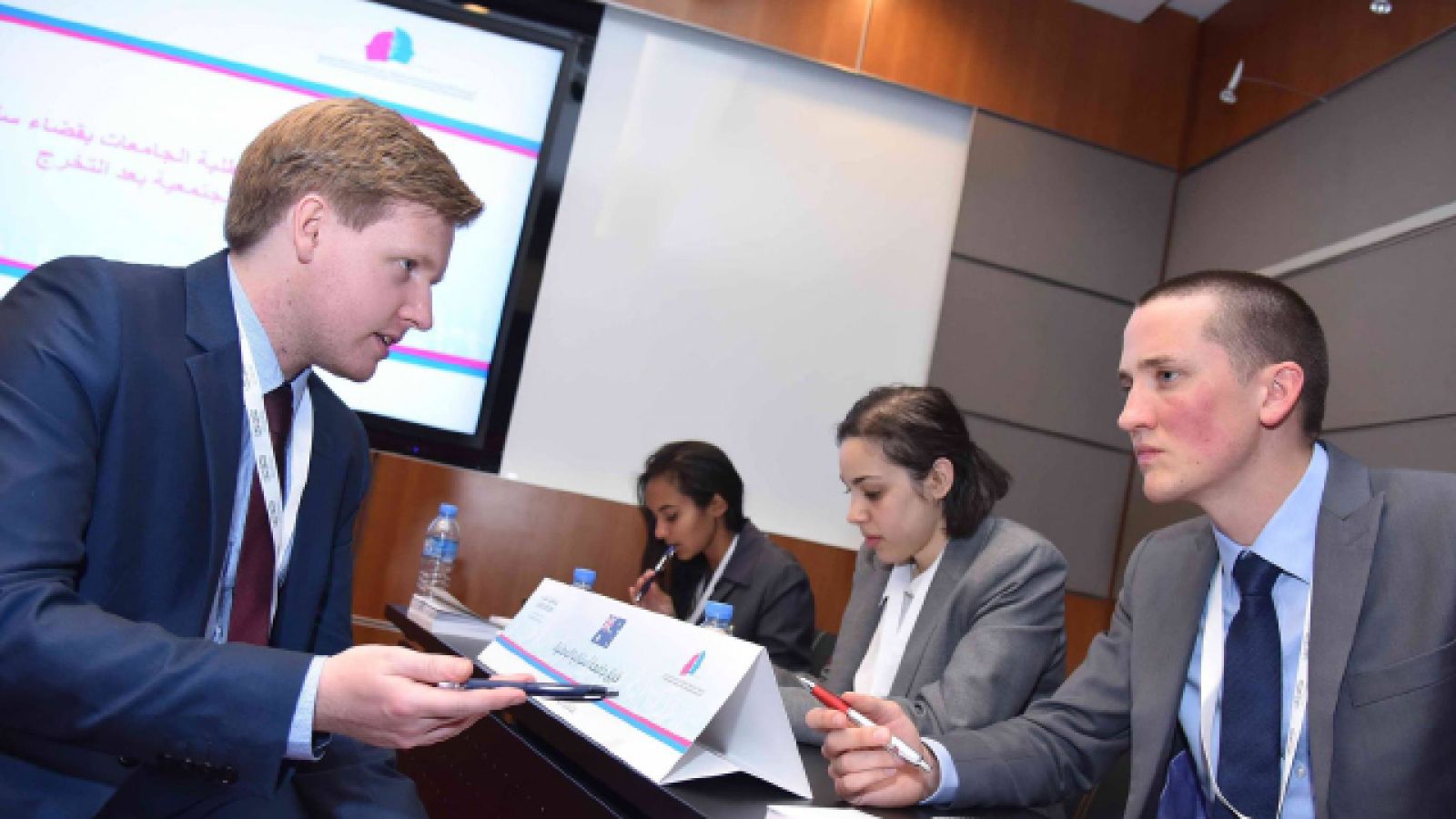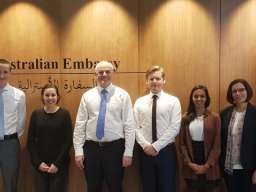ANU students perform well at international Arabic language debating championships

The ANU team won two of their five debates at the 2017 4th International Universities Arabic Debating Championship in Qatar. Image: Qatar Debate
For people who fear public speaking, debating is one thing they’d rather avoid – nevermind debating in a second language, in another country.
Four students of The Australian National University’s Centre for Arab and Islamic Studies recently accepted that challenge: Maya Bhandari, Joel Baker, Tommy Randall and Yara Hussein.
They represented the ANU and Australia at the 4thInternational Universities Arabic Debating Championship in Qatar, along with their coach and Arabic language teacher, Leila Kouatly.
“It was honestly one of the craziest and most rewarding experiences I’ve had so far at ANU,” says Joel Baker.
“Getting the chance to meet so many new people from so many different parts of the world, who speak so many languages and have so many different opinions on all the topics we debated – it was just awesome.
“To any current or prospective ANU Arabic students out there, I would definitely put this on your list as something to aim for in 2019.”
The championships began in 2011 and are held every two years. ANU has participated since 2013 and in 2017 was among 86 teams from 47 countries.
This year they won two of their five debates and competed against students from Turkey, Brunei, France, Vietnam and Pakistan.
Preparations included numerous mock debates and new vocabulary in the weeks before the tournament.
“Our first debate was about whether it should be compulsory for students to spend time working in the community after graduation,” Maya Bhandari recalls.
“An hour later, we were debating whether men should be involved in women's rights movements.
“It has definitely motivated me and increased my confidence levels as it has proven that we are able to converse and communicate with strangers, thanks to the teaching at CAIS.”
Part of the 2015 team, Tommy Randall was honoured to attend his second championship.
“The topics varied widely, and I found them to be more challenging than those we encountered in the previous tournament,” he says.
“I was blown away by the standard of debating on show and the warmth of the people we met along the way,” he says.
“I forged friendships with Arabic students from all over the world, including native and non-native speakers.”
Also at her second Qatar Debate was Yara Hussein, who appreciated being able to share complementary skills with her team.
“What resonated most with me was having the chance to meet Arabic language students from all over the world, as I had no idea that interest in Arabic was so wide-spread.
“It was great to engage with such a diverse group of people and exchange our ideas and experiences, especially in a context where language barriers were not a concern.”
Teacher and coach, Leila Kouatly, is proud of the team’s performance.
“Especially as they debated against teams which included native speakers,” she says.
“They showed a lot of courage and embraced every opportunity to speak Arabic, be it at formal or informal gatherings.
“Their critical thinking and logical arguments were a reflection of the world-class education they get at ANU.”
The students also explored Qatar’s Islamic Museum of Art, local souks (markets), met ANU alumnus Dr Adel Abdel Ghafar at the Brookings Institution's Doha Centre, and Australian Ambassador Axel Wabenhorst at the Australian Embassy.
There was also a four-wheel drive adventure across giant sand dunes south of Doha to a camp site in 40 degree heat.
“At the camp we swam in the beautiful clear and cool water, hung out in the dozens of pavilions they had set up, tried camel rides, or played a bunch of games they had set up, like soccer and tug-of-war,” Joel remembers.
“They definitely knew the best ways for us to blow off some steam after three days of hard debates.”
